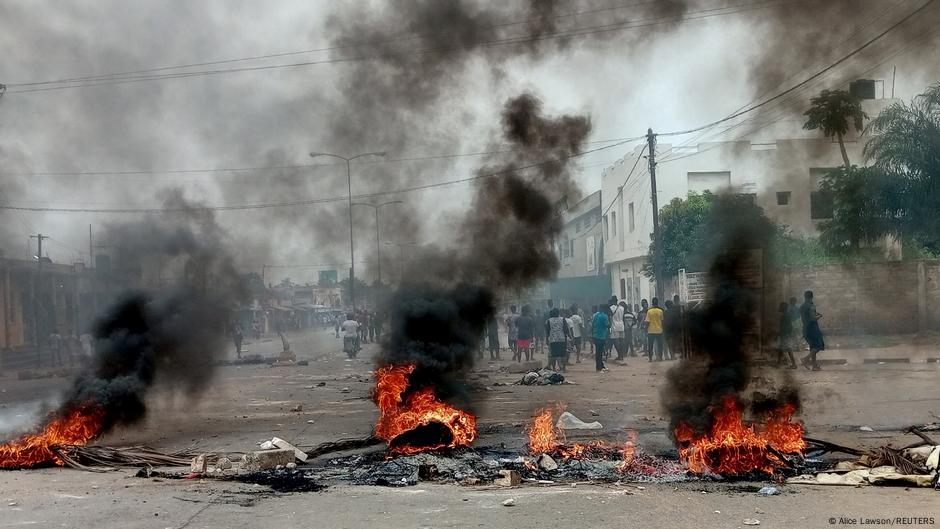
Consolidation of Power in Togo
Togo’s President Faure Gnassingbe has taken significant steps to solidify his control over the nation by introducing a new position within the government. This move has drawn attention from political observers who suggest that other long-standing leaders across Africa might follow suit in an effort to extend their time in power.
In May, President Faure Gnassingbe stepped down from his role as head of state. Since then, Jean-Lucien Savi de Tove has served as president. However, this does not mean that Gnassingbe has relinquished his influence. Instead, he now holds the position of president of the Council of Ministers, a newly established body created after a constitutional amendment.
This new role has effectively transferred most of the powers previously held by the president to the Council of Ministers. As a result, President de Tove is now largely a ceremonial figurehead, with little actual authority. Critics argue that this arrangement amounts to a "constitutional coup" because the new position is not elected but rather appointed by the dominant faction in parliament. Given that Gnassingbe's party, the Union for the Republic (UNIR), holds a strong majority, it is clear that this change was strategically designed to maintain his grip on power.
The Gnassingbe Dynasty and Political Control
The Gnassingbe family has been at the center of Togo’s political landscape for decades. Their control extends across all levels of governance, including the parliament. Pape Ibrahima Kane, director of the Open Society Initiative for West Africa (OSIWA) in Dakar, highlights that the recent unrest in Togo was not just about the arrest of individuals but also a reflection of widespread frustration with the family’s long-standing dominance.
Kane points out that the Togolese government has ignored key principles outlined in the African Charter on Democracy, Elections and Governance. Adopted by the African Union in 2007 and implemented in 2012, the charter emphasizes the importance of regular, free, and fair elections to legitimize democratic governance. Despite this, Togo continues to be ruled by the Gnassingbe family, which has held power for over 58 years.
Faure Gnassingbe took over from his father, Gnassingbe Eyadema, who had governed for nearly four decades. With his latest maneuver, he has further entrenched his authority, raising concerns among international observers and human rights advocates.
Concerns Over Democratic Erosion
Fredson Guilenge of the Rosa Luxemburg Foundation in Johannesburg warns that the situation in Togo could set a dangerous precedent for other African leaders. He notes that the move may inspire others to manipulate constitutional amendments to remain in power without facing the electorate.
“This is a worrying trend regarding democracy, human rights, and civic space,” says Esso-Dong Divin Aymard Kongah, a Togolese human rights lawyer. “It leads to a shrinking civic space where people have less power to influence public affairs.”
Gnassingbe’s strategy is not unique. Several African leaders have pursued similar tactics to stay in office. For example:
- Central African Republic: President Faustin-Archange Touadera amended the constitution to run for a third term in the late 2025 election.
- Uganda: President Yoweri Museveni, aged 80, seeks re-election for the seventh time after removing age limits for presidential candidates in 2017.
- Cameroon: President Paul Biya, 92, aims for an eighth term, potentially reaching the age of 99.
- Republic of Congo: President Denis Sassou-Nguesso has ruled for 41 years.
- Ivory Coast: President Alassane Ouattara, 83, announced another bid for the presidency after seeking constitutional changes starting in 2016.
Equatorial Guinea’s Teodoro Obiang Nguema, the world’s longest-serving head of state, has been in power since 1979 and is widely regarded as a dictator.
Repression and Protests
In Togo, systemic repression of the opposition has allowed leaders to maintain control. When younger generations demand political change, protests are often met with violence. At least seven people were killed during demonstrations demanding the government's resignation following a controversial constitutional amendment and disputed local elections.
Human rights organizations have long criticized the Togolese government for suppressing freedom of speech and assembly. These actions further undermine democratic principles and limit civic participation.
Influence of Sahel Juntas
Fredson Guilenge warns that events in Togo may be influenced by the rise of junta-led governments in the Sahel region. Between 2020 and 2023, there were six military coups in West Africa. Leaders of Mali, Burkina Faso, and Niger have opted to collaborate with Russia instead of former colonial powers like France.
While these junta governments have not ruled out a return to civilian rule, progress toward democratic transitions has been slow. In July, Mali’s leader Assimi Goita extended his leadership by five years without any immediate plans for elections.
Guilenge suggests that similar strategies might appeal to leaders in Uganda, Rwanda, or Equatorial Guinea. However, he emphasizes that the risks vary across the continent. The current global context, marked by the erosion of democracy and multilateralism, presents additional challenges for liberal democracies.
As the situation in Togo unfolds, it serves as a critical reminder of the fragility of democratic institutions and the need for vigilance in protecting civic freedoms.
